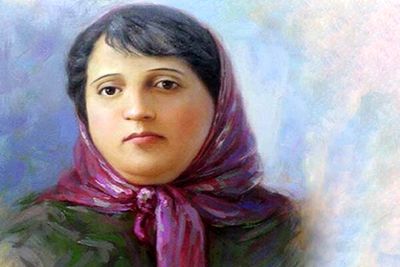Published in early 2021, the play “Parvin” will be directed by Hossein Kiani, who also wrote it.
He intended to stage the play last summer, but his plans were canceled due to the COVID-19 lockdown.
Etesami’s poetry is based upon themes of social, humanitarian and mystical concepts, and contains no allusions to romantic love or feminine sentiment.
“We have numerous influential figures in our culture and literature,” Kiani said after the release of his play in March 2021.
“Biographical plays can represent the value of such personalities to theatergoers. Countries have the valuable tradition of performing biographical plays on their national and cultural luminaries. It’s worthwhile to pay more attention to such plays. I wrote this play to raise public awareness of this literary and cultural personality,” he added.
“Staging historical dramas has a greater impact than literary-historical books, because these books have a limited number of readers such academics, researchers or history lovers,” Kiani noted.
He has previously said that it is expected that the official cultural organization will prepare the appropriate conditions for plays on national cultural luminaries to be performed.
He warned that if an appropriate time and funds are not allocated for the play he would withdraw his plan to stage the play, “because the play and the national cultural figure would be ruined.”
Born in Tabriz, Etesami was the daughter of the journalist and man of letters Yusof Etesami. Early in her life, the family moved to Tehran, where, in addition to formal schooling, she received solid training in Arabic and classical Persian literature from her father.
She also met a number of noted poets and literati of the time who held literary meetings in Etesami’s home.
After graduation in 1924 from the Iran Bethel, an American high school for girls, she taught for a while at that school. In 1926 she was invited to tutor the queen of the new Pahlavi court, but she declined.
She accompanied her father on several trips in Persia and one to Iraq. In 1934 she married a cousin of her father and moved to Kermanshah. However, after only ten weeks she returned home, and the marriage was dissolved.
In 1936, the Ministry of Education honored her with a third-class medal but she refused to accept it, probably because it was too low to appeal to her sense of dignity.
Her father’s death in 1938 bereft Parvin of his loving support and virtually severed her contact with the outside world. Her sudden death only three years after her father shocked the country and was mourned in many elegies. She was buried near her father in Qom.
Parvin was only seven or eight years old when her poetic talent revealed itself. Encouraged by her father, she rendered into verse some literary pieces that her father had translated from Western sources.
Her earliest known poems, eleven compositions printed in 1921-22 issues of her father’s monthly magazine, Bahar, display an astonishing maturity of thought and craft.
The first edition of her divan, comprising 156 poems, appeared in 1935 with an introduction by the renowned poet Mohammad-Taqi Bahar.

